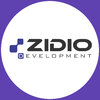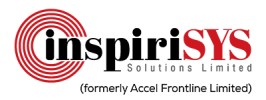Filter interviews by
Xetech Software Developer Interview Questions and Answers
18 Interview questions
I have 3 years of experience as an ASP Core Web API and ReactJs Developer.
3 years of experience in ASP Core Web API development
Proficient in ReactJs development
Developed multiple projects using ASP Core Web API and ReactJs
States are mutable data managed within a component, while Props are immutable data passed from parent to child components.
States are managed within a component and can be changed by the component itself
Props are passed from parent to child components and cannot be changed by the child component
States are used for internal component data management, while Props are used for passing data from parent to child compone...
Context API is a built-in feature in React for managing global state, while Redux is a standalone library for state management.
Context API is built into React, while Redux is a separate library.
Context API is primarily used for managing global state in a React application.
Redux provides a centralized store for managing state across the application.
Context API is simpler to use for smaller applications, while Redux...
Optimizing SQL queries involves using indexes, minimizing data retrieval, and avoiding unnecessary joins.
Use indexes on columns frequently used in WHERE clauses
Minimize data retrieval by selecting only necessary columns
Avoid unnecessary joins by using EXISTS or IN clauses instead of JOINs
Views are virtual tables, procedures are reusable code blocks, functions return values
Views are virtual tables that display data from one or more tables
Procedures are reusable code blocks that can be called multiple times
Functions return a single value based on input parameters
Views are read-only, while procedures and functions can modify data
Examples: View - SELECT * FROM employees_view; Procedure - EXECUTE get_e...
Code First: Develop database from code. Database First: Generate code from existing database.
Code First: Focus on code design and then generate database schema.
Database First: Focus on existing database schema and generate code classes.
Code First: More control over database design and relationships.
Database First: Faster development for existing databases.
Code First: Entity Framework Code First approach.
Database F...
To connect SQL to ASP Core Web API, you need to configure a database connection in the API project.
Configure a connection string in the appsettings.json file of the API project.
Install Entity Framework Core package in the API project.
Create a DbContext class that inherits from DbContext and represents the database.
Use dependency injection to inject the DbContext into the API controllers.
LINQ (Language Integrated Query) is a feature in C# that allows for querying data from different data sources using a uniform syntax.
LINQ allows for querying data from collections, databases, XML, and more.
It provides a set of standard query operators like Where, Select, OrderBy, etc.
LINQ queries are written in a declarative syntax similar to SQL.
Example: var result = from num in numbers where num % 2 == 0 select ...
Use indexing, limit the columns retrieved, optimize queries, use pagination
Create indexes on columns frequently used in queries
Limit the columns retrieved to only those needed
Optimize queries by using WHERE clauses and avoiding SELECT *
Implement pagination to retrieve records in smaller chunks
Joins are used to combine rows from two or more tables based on a related column, while subqueries are nested queries used to return data for the main query.
Joins are used to retrieve data from multiple tables based on a related column
Subqueries are nested queries within a main query to return data for the main query
Joins are typically more efficient than subqueries for large datasets
Joins can be of different type...
Xetech Software Developer Interview Experiences
3 interviews found
(1 Question)
- Q1. What is clustered and non clustered index in SQL
- Ans.
Clustered index physically reorders the data in the table while non-clustered index creates a separate structure.
Clustered index determines the physical order of data in the table, while non-clustered index does not.
A table can have only one clustered index but multiple non-clustered indexes.
Clustered index is faster for retrieval of data but slower for insert and update operations.
Non-clustered index is slower for ret...
Skills evaluated in this interview
I applied via Indeed and was interviewed before Jul 2022. There were 3 interview rounds.

(17 Questions)
- Q1. What is ASP Dot Net Core?
- Ans.
ASP.NET Core is a cross-platform, high-performance framework for building modern, cloud-based, internet-connected applications.
Cross-platform framework for building web applications
High-performance and scalable
Supports cloud-based and internet-connected applications
Open-source and actively maintained by Microsoft
Modular design for flexibility and extensibility
- Q2. What are the key features of ASP Dot Net CORE?
- Ans.
Key features of ASP Dot Net CORE include cross-platform support, high performance, and modularity.
Cross-platform support allows developers to build and run applications on Windows, macOS, and Linux.
High performance achieved through features like a new lightweight and modular HTTP request pipeline.
Modularity enables developers to include only the necessary components in their applications, reducing the overall size and ...
- Q3. Explain the Use of Entity Framework Core
- Ans.
Entity Framework Core is an ORM framework that allows developers to work with databases using .NET applications.
Entity Framework Core is an Object-Relational Mapping (ORM) framework for .NET applications.
It allows developers to work with databases using .NET objects and LINQ queries.
EF Core supports various database providers such as SQL Server, SQLite, MySQL, etc.
It simplifies data access and persistence by handling d...
- Q4. Write an SQL Query to remove duplicate records
- Ans.
Use the DISTINCT keyword in an SQL query to remove duplicate records.
Use the SELECT DISTINCT statement to retrieve unique records.
Identify the columns that should be used to determine uniqueness.
Consider using GROUP BY clause with aggregate functions if needed.
- Q5. What are the Differences between Joins and Sub Queries
- Ans.
Joins are used to combine rows from two or more tables based on a related column, while subqueries are nested queries used to return data for the main query.
Joins are used to retrieve data from multiple tables based on a related column
Subqueries are nested queries within a main query to return data for the main query
Joins are typically more efficient than subqueries for large datasets
Joins can be of different types lik...
- Q6. What are the Differences between Views, Procedures, and Functions
- Ans.
Views are virtual tables, procedures are reusable code blocks, functions return values
Views are virtual tables that display data from one or more tables
Procedures are reusable code blocks that can be called multiple times
Functions return a single value based on input parameters
Views are read-only, while procedures and functions can modify data
Examples: View - SELECT * FROM employees_view; Procedure - EXECUTE get_employ...
- Q7. Difference between the Code First and Database First Approach
- Ans.
Code First: Develop database from code. Database First: Generate code from existing database.
Code First: Focus on code design and then generate database schema.
Database First: Focus on existing database schema and generate code classes.
Code First: More control over database design and relationships.
Database First: Faster development for existing databases.
Code First: Entity Framework Code First approach.
Database First:...
- Q8. How to connect SQL to ASP Core Web API
- Ans.
To connect SQL to ASP Core Web API, you need to configure a database connection in the API project.
Configure a connection string in the appsettings.json file of the API project.
Install Entity Framework Core package in the API project.
Create a DbContext class that inherits from DbContext and represents the database.
Use dependency injection to inject the DbContext into the API controllers.
- Q9. What is Dependency Injection and how to achieve it
- Ans.
Dependency Injection is a design pattern where the dependencies of an object are provided externally rather than created within the object itself.
Dependencies are injected into a class through constructor injection, setter injection, or interface injection.
This helps in achieving loose coupling between classes and makes the code more testable and maintainable.
Example: Instead of creating an instance of a dependency wit...
- Q10. Explain the use of LINQ in C#
- Ans.
LINQ (Language Integrated Query) is a feature in C# that allows for querying data from different data sources using a uniform syntax.
LINQ allows for querying data from collections, databases, XML, and more.
It provides a set of standard query operators like Where, Select, OrderBy, etc.
LINQ queries are written in a declarative syntax similar to SQL.
Example: var result = from num in numbers where num % 2 == 0 select num;
- Q11. Can you explain the steps to enable JWT Authentication in ASP Core Web API with Roles?
- Ans.
Enable JWT Authentication in ASP Core Web API with Roles
Install the required NuGet packages like Microsoft.AspNetCore.Authentication.JwtBearer
Configure JWT authentication in Startup.cs file
Add authentication middleware in Configure method
Implement role-based authorization using policies and attributes
- Q12. Explain different ways to optimize SQL Queries
- Ans.
Optimizing SQL queries involves using indexes, minimizing data retrieval, and avoiding unnecessary joins.
Use indexes on columns frequently used in WHERE clauses
Minimize data retrieval by selecting only necessary columns
Avoid unnecessary joins by using EXISTS or IN clauses instead of JOINs
- Q13. How to efficiently retrieve SQL records in case a table has millions of records
- Ans.
Use indexing, limit the columns retrieved, optimize queries, use pagination
Create indexes on columns frequently used in queries
Limit the columns retrieved to only those needed
Optimize queries by using WHERE clauses and avoiding SELECT *
Implement pagination to retrieve records in smaller chunks
- Q14. Explain the use and types of Indexing in SQL
- Ans.
Indexing in SQL is used to improve the performance of queries by creating a data structure that allows for faster retrieval of data.
Types of indexing include clustered and non-clustered indexes
Clustered indexes physically order the data in the table based on the index key
Non-clustered indexes create a separate data structure that includes the indexed columns and a pointer to the actual data
Indexes can be created on sin...
- Q15. How much experience do have as ASP Core Web API and ReactJs Developer?
- Ans.
I have 3 years of experience as an ASP Core Web API and ReactJs Developer.
3 years of experience in ASP Core Web API development
Proficient in ReactJs development
Developed multiple projects using ASP Core Web API and ReactJs
- Q16. Explain the difference between States and Props
- Ans.
States are mutable data managed within a component, while Props are immutable data passed from parent to child components.
States are managed within a component and can be changed by the component itself
Props are passed from parent to child components and cannot be changed by the child component
States are used for internal component data management, while Props are used for passing data from parent to child components
- Q17. What is the difference between Context API and Redux?
- Ans.
Context API is a built-in feature in React for managing global state, while Redux is a standalone library for state management.
Context API is built into React, while Redux is a separate library.
Context API is primarily used for managing global state in a React application.
Redux provides a centralized store for managing state across the application.
Context API is simpler to use for smaller applications, while Redux is m...
(1 Question)
- Q1. Your interview was great, what is your expected CTC
Interview Preparation Tips
- React.Js
- C#
- dot net core
- SQL
Skills evaluated in this interview
I applied via AmbitionBox and was interviewed before May 2021. There were 2 interview rounds.

(2 Questions)
- Q1. What are the design patten we use in iOS?
- Ans.
iOS design patterns include MVC, MVVM, Singleton, Factory, and Observer.
MVC separates data, view, and controller logic
MVVM adds a view model to handle data binding
Singleton ensures only one instance of a class exists
Factory creates objects without exposing the creation logic
Observer allows objects to be notified of changes in other objects
- Q2. Concurrency programing
Interview Preparation Tips
- Objective C
- OOPS
- Swift
Skills evaluated in this interview
Top trending discussions






Interview questions from similar companies

Software Developer Interview Questions & Answers
Apmosys Technologiesposted on 12 Apr 2023
I applied via Recruitment Consulltant and was interviewed before Apr 2022. There were 3 interview rounds.

25 MCQ questions online with time limit
Create webapp . Frontend, Backend , data encryption

Software Developer Interview Questions & Answers
BigStep Technologiesposted on 19 Nov 2021
I applied via Naukri.com and was interviewed in May 2021. There was 1 interview round.
Interview Questionnaire
4 Questions
- Q1. To find if a number is Prime or not and optimise your written code.
- Ans.
Check if a number is prime and optimize the code.
Start by checking if the number is less than 2, in which case it is not prime.
Iterate from 2 to the square root of the number and check if any of them divide the number evenly.
If a divisor is found, the number is not prime. Otherwise, it is prime.
- Q2. Css question related to flex box, Grid and cross browser compatibility
- Q3. To call an API in react and optimise your written code.
- Ans.
To optimise API calls in React, use asynchronous functions and caching techniques.
Use async/await to handle API calls
Implement caching to reduce network requests
Use memoization to avoid unnecessary re-renders
Consider using a state management library like Redux
Use performance profiling tools like React DevTools
- Q4. Questions on JS concepts like Objects and Prototype Inheritance.
Interview Preparation Tips
Skills evaluated in this interview

Software Developer Interview Questions & Answers
BigStep Technologiesposted on 9 Feb 2022
I applied via Campus Placement
Online Coding Test included some aptitude questions, technical questions followed by 3 coding questions
(1 Question)
- Q1. My technical interview included an introduction about myself followed by my background, projects I've made, internships I've done, and in which language I was comfortable. and the interviewer asked me to w...
Interview Preparation Tips

(1 Question)
- Q1. Discussed on my last salary

I applied via Recruitment Consulltant and was interviewed before Apr 2023. There were 3 interview rounds.
(1 Question)
- Q1. General fit to profile filtration
(3 Questions)
- Q1. To the profile applied for
- Q2. Explain an actual component
- Ans.
An actual component is a reusable and modular piece of software that performs a specific function within a larger system.
Components are often designed to be independent and can be easily integrated into different systems.
Examples of components include buttons, input fields, and dropdown menus in a user interface.
Components can have their own logic, styling, and functionality, making them versatile building blocks for s...
- Q3. Design the architecture
- Ans.
Designing the architecture for a software system involves planning the structure and components of the system.
Identify the key components of the system and their interactions
Choose appropriate technologies and frameworks for each component
Consider scalability, performance, security, and maintainability
Create a detailed diagram or documentation of the architecture
(1 Question)
- Q1. Attitude towards work
Interview Preparation Tips
Skills evaluated in this interview

Software Developer Interview Questions & Answers
Snovasysposted on 1 Nov 2024
I applied via Campus Placement and was interviewed in Oct 2024. There were 2 interview rounds.
(2 Questions)
- Q1. Number series in aptitude
- Ans.
Number series in aptitude involves identifying the pattern in a sequence of numbers and predicting the next number.
Look for patterns such as arithmetic progression, geometric progression, or a combination of both.
Check for alternate numbers, differences between consecutive numbers, or multiplication factors.
Consider prime numbers, squares, cubes, or other mathematical operations applied to the series.
Example: 2, 4, 6, ...
- Q2. Relation ships in berbal
- Ans.
Relationships in verbal communication are crucial for effective collaboration and understanding.
Verbal communication involves both verbal and non-verbal cues
Active listening is key to building strong relationships in verbal communication
Clarity and conciseness in speech can enhance relationships
Empathy and understanding of others' perspectives are important in verbal relationships
(2 Questions)
- Q1. Explain the four branches of oops
- Ans.
The four branches of OOP are encapsulation, inheritance, polymorphism, and abstraction.
Encapsulation: Bundling data and methods that operate on the data into a single unit.
Inheritance: Allowing a class to inherit properties and behavior from another class.
Polymorphism: The ability for objects of different classes to respond to the same method call.
Abstraction: Hiding the complex implementation details and showing only ...
- Q2. Explain about the structures in c
- Ans.
Structures in C are user-defined data types that allow grouping of variables of different data types under a single name.
Structures are used to represent a record which consists of different data types.
They are defined using the 'struct' keyword.
Each variable in a structure is called a member.
Structures can be nested within other structures.
Example: struct employee { int emp_id; char emp_name[50]; float emp_salary; };
E...
Skills evaluated in this interview

I appeared for an interview in Feb 2025.
They asked one coding question that is for star pattern question
Interview Preparation Tips
Xetech Interview FAQs
Some of the top questions asked at the Xetech Software Developer interview -
Tell us how to improve this page.
Xetech Interviews By Designations
Interview Questions for Popular Designations
- Software Engineer Interview Questions
- Java Developer Interview Questions
- Web Developer Interview Questions
- Senior Software Developer Interview Questions
- Application Developer Interview Questions
- Salesforce Developer Interview Questions
- Software Development Engineer Interview Questions
- Developer Interview Questions
- Show more
Overall Interview Experience Rating
based on 2 interview experiences
Difficulty level
Duration
Top Skills for Xetech Software Developer
Software Developer Interview Questions from Similar Companies
Xetech Software Developer Reviews and Ratings
based on 8 reviews
Rating in categories
|
Software Tester
17
salaries
| ₹2 L/yr - ₹8 L/yr |
|
Senior Software Developer
12
salaries
| ₹11.7 L/yr - ₹16.5 L/yr |
|
Software Developer
9
salaries
| ₹7 L/yr - ₹13.9 L/yr |
|
Softwaretest Engineer
6
salaries
| ₹1.9 L/yr - ₹5.5 L/yr |
|
Team Lead
5
salaries
| ₹12 L/yr - ₹15.5 L/yr |

Northcorp Software

Zidio Development

Accel Frontline

Elentec Power India (EPI) Pvt. Ltd.
- Home >
- Interviews >
- Xetech Interview Questions













